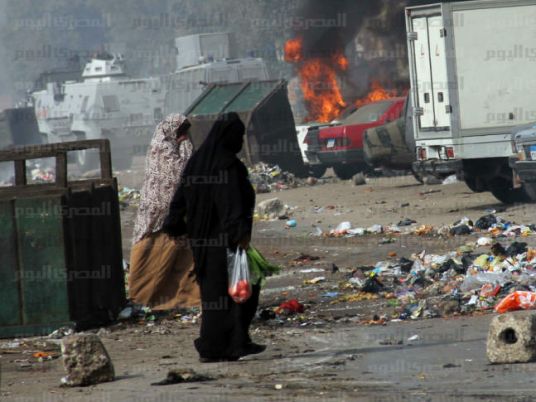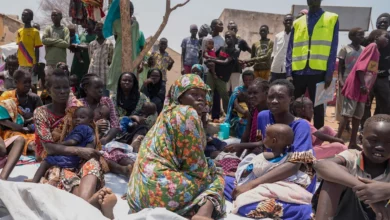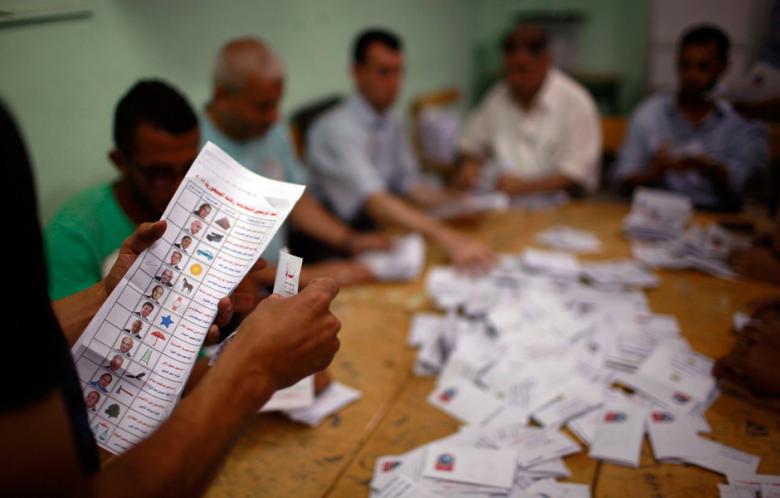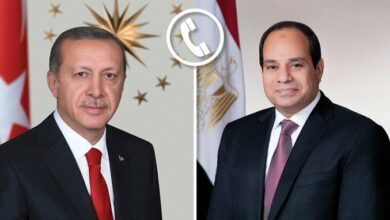
People in a Daqahlia village set fire on Monday to houses owned by supporters of the Muslim Brotherhood, the banned group that security authorities suspect of perpetrating the murder of a police officer and his uncle in a drive-by shooting just hours earlier.
While security authorities said the identities of the murderers were yet known, citizens, enraged by the policeman’s killing, identified two citizens whom they said had previously brawled with their neighboring victims, causing a leg injury to the policeman’s father.
While the villagers’ vengeful action marked another confrontation between supporters of the Muslim Brotherhood and their pro-regime opponents, many incidents of inciteful rhetoric adopted by the regime and its overzealous media drumbeaters could be spurring citizens to take the law into their own hands.
In its rhetoric, Egyptian authorities currently have yet to make a distinction between the Brotherhood and the Islamist extremist groups that have orchestrated deadly attacks on security forces since 2013.
Late January, President Abdel Fattah al-Sisi urged Egyptians to revenge the fallen troops in a speech made a few days after a deadly attack by Islamist extremist groups on army facilities in Arish, North Sinai, that left at least 30 officers dead.
“I will not tie your hands up with revenge to Egypt’s martyrs,” he was quoted as saying during a speech at al-Galaa Theater attended by several dignitaries.
Though the president explained that doing so “does not mean killing the innocent,” his words, lambasted by opponents for its instigatory connotations, allegedly has encouraged some to rise up in arms as vigilantes.
Three days later, officer Osama Abdallah shot dead a hospitalized Brotherhood-linked suspect who had previously been arrested for over an attempted bombing plot.
“I could not hold myself in check after listening to President Abdel Fattah al-Sisi’s speech,” Abdallah told interrogators.
But while the president’s remarks could have been wrong in selecting his words, his fervent media advocates were more open in their call.
Following the soldiers’ massacre in Arish, columnist Mahmoud al-Kardousy from independent daily Al-Watan, urged the president to be “as fascist as possible” in dealing with the terrorist threat.
“I will never forgive you for the bloods of our martyrs until I see you [acting as] a fascist. Get angry, Mr. President. I won't cease neither to praise you nor to spur you until the Muslim Brotherhood and their dogs are history.”
The fourth anniversary of the 25 January uprising had seen violent clashes between police and Brotherhood loyalists in Matariya, east of Cairo. The district reportedly saw the fiercest encounters during the day.
Commenting on the developments, Sada el-Balad satellite channel’s Ahmed Moussa, one of the most outspoken Sisi backers in the private media, called for the district to be purged of Brotherhood members.
“Starting from tomorrow, I want Matariya free of any Brotherhood dog,” he ranted on air in an episode late January, addressing police forces.
Later in February, Moussa, in his show, called upon Egyptians to protest in support for President Sisi’s fight against terrorism, asking the people to hoist banners demanding “the execution of the Brotherhood”.




